Indigenous Governance Database
poverty

What are the Limits of Social Inclusion? Indigenous Peoples and Indigenous Governance in Canada and the United States
Contemporary debates about poverty and its mitigation often invoke the idea of social inclusion: the effort to increase the capacities and opportunities of disadvantaged populations to participate more fully in the economy, polity, and institutions of developed societies. While practical outcomes…
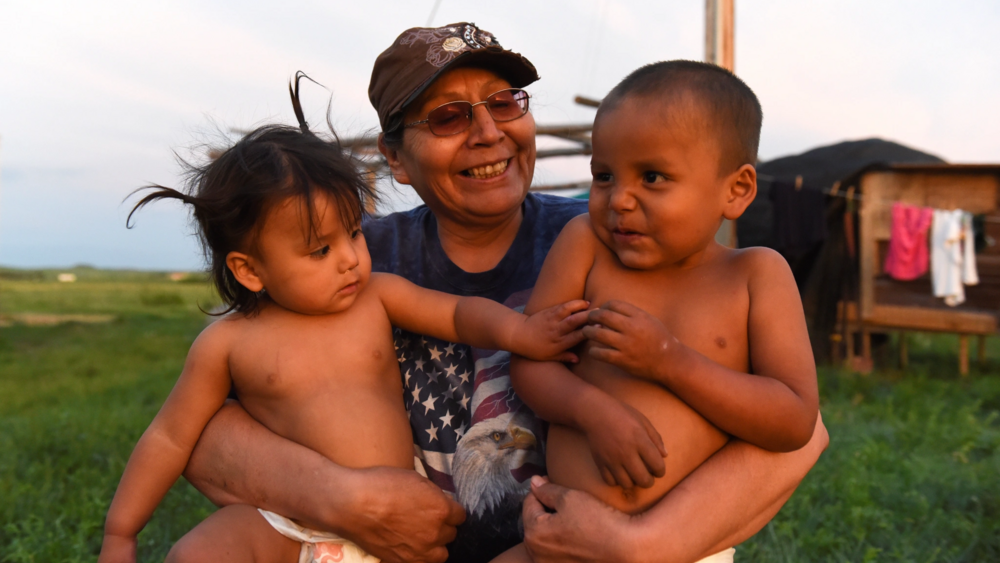
How does measuring poverty and welfare affect American Indian children?
For one group of children in particular, American Indians and Alaska Natives, exceedingly high poverty rates have had profound impacts on community wellbeing and long-term cohesiveness. Given the best available data, from the U.S. Census data, child poverty rates among American Indians and Alaska…

Indigenous Peoples, Poverty and Self-Determination in Australia, New Zealand, Canada and the United States
Australia, New Zealand, Canada and the United States are among the world’s wealthiest nations. It is an often noted irony–and an occasional source of embarrassment to the governments of these countries–that the Indigenous peoples within their borders are in each case among their poorest citizens.

Honoring Nations: Jennifer Harris and Julia Davis-Wheeler: The Healing Lodge of the Seven Nations
Representatives Jennifer Harris and Julia Davis-Wheeler of the Healing Lodge of the Seven Nations youth treatment center discuss the Lodge's genesis and how it works to strengthen the families of the seven Native nations it serves.
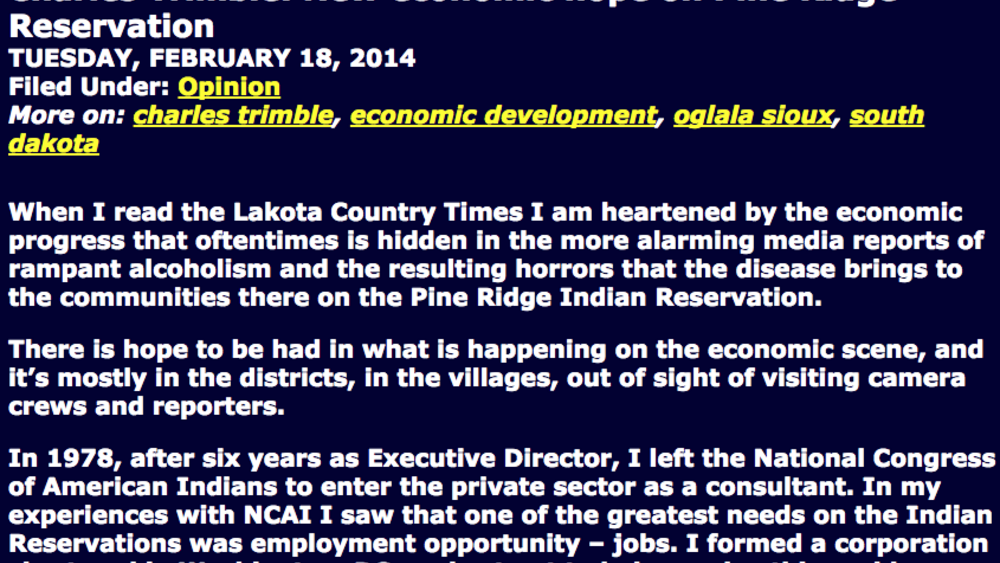
New economic hope on Pine Ridge Reservation
When I read the Lakota Country Times I am heartened by the economic progress that oftentimes is hidden in the more alarming media reports of rampant alcoholism and the resulting horrors that the disease brings to the communities there on the Pine Ridge Indian Reservation. There is hope to be had…

No Tribes Left Behind: A Smarter Plan for Economic Development
Many Americans have never been to a Native American reservation. They’re often geographically isolated and underdeveloped, perpetually left off the various lists of tourism destinations. With sparse and scattered populations, tribal governments have faced many obstacles in exploring economic…

Key to Indian Development: Self-Government
Beginning late in the last century, the economies of Indian nations in the United States began recording a remarkable turnaround. Since the early 1990s, per capita income on Native American reservations has grown three times faster than have incomes in the nation as a whole. American Indians are…
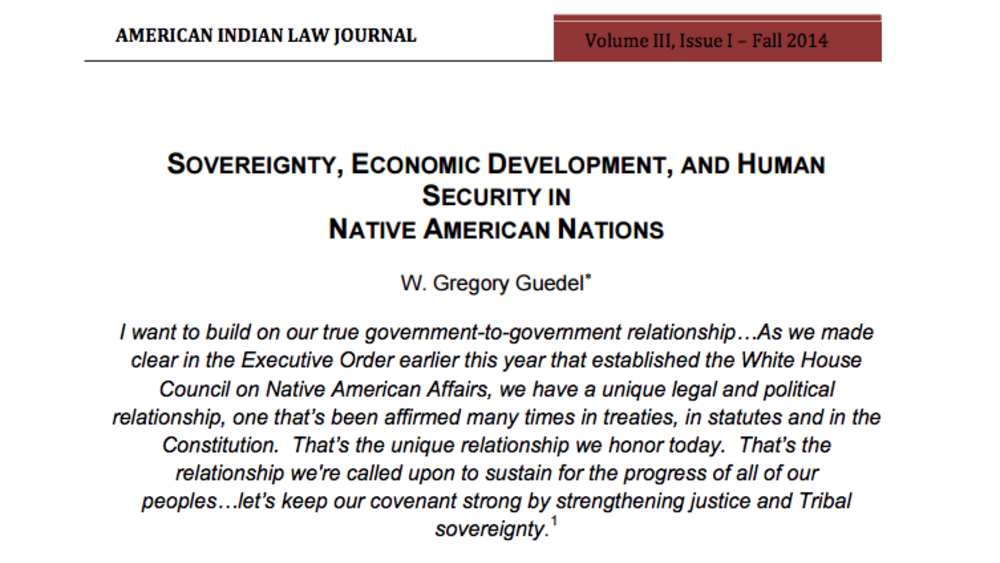
Sovereignty, Economic Development, and Human Security in Native American Nations
This study explores elements of the sovereignty dynamic in the government-to-government relationship between the United States and Native American nations to assess 1) what benefits Tribal communities glean from this unique relationship; and 2) whether enhanced Tribal sovereignty can enhance…
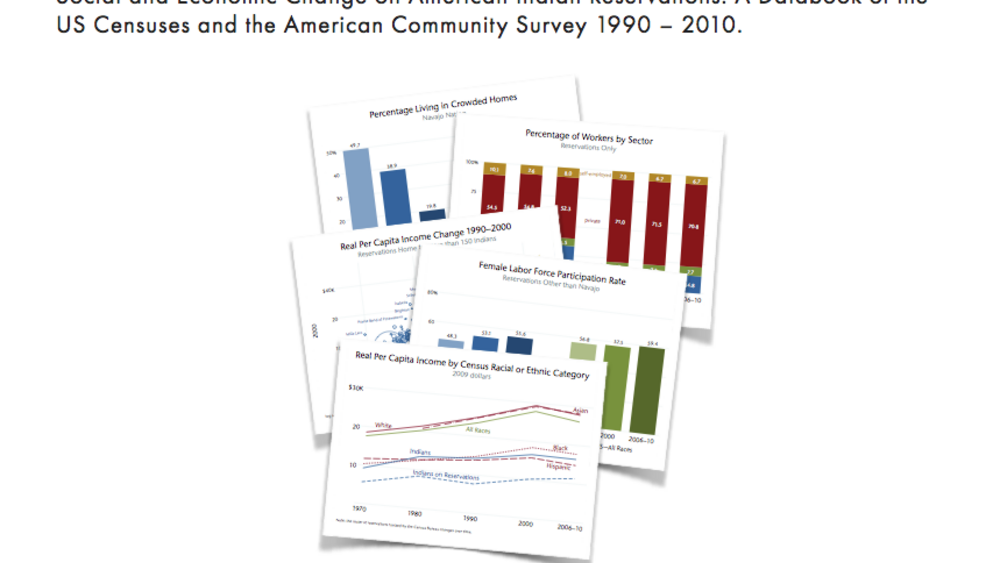
Social and Economic Change on American Indian Reservations: A Databook of the US Censuses and the American Community Survey 1990-2010
The fortunes of Indians on reservations continue to lag those of other racial and ethnic groups tracked by the census in the United States. The per capita income of Indians on reservations, for example, has been less than half the US average, consistently falling far below that of Hispanics,…
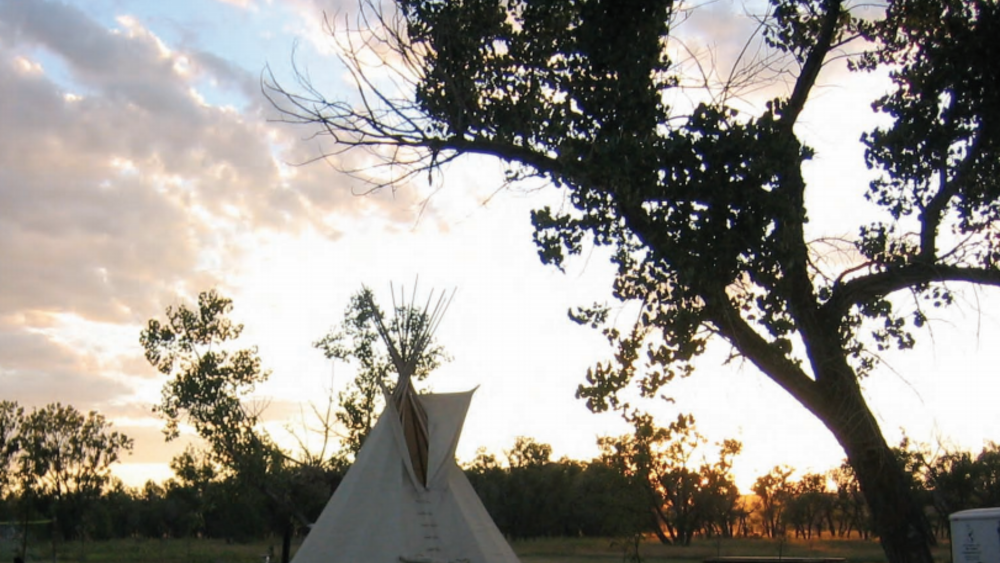
Native Entrepreneurship in South Dakota: A Deeper Look
Native Entrepreneurship in South Dakota: a Deeper Look is designed to raise the profile of Native entrepreneurship in South Dakota and offer lessons for policymakers, foundations, tribes, and non-profits in developing effective policies and strategies. The research identified the following key…
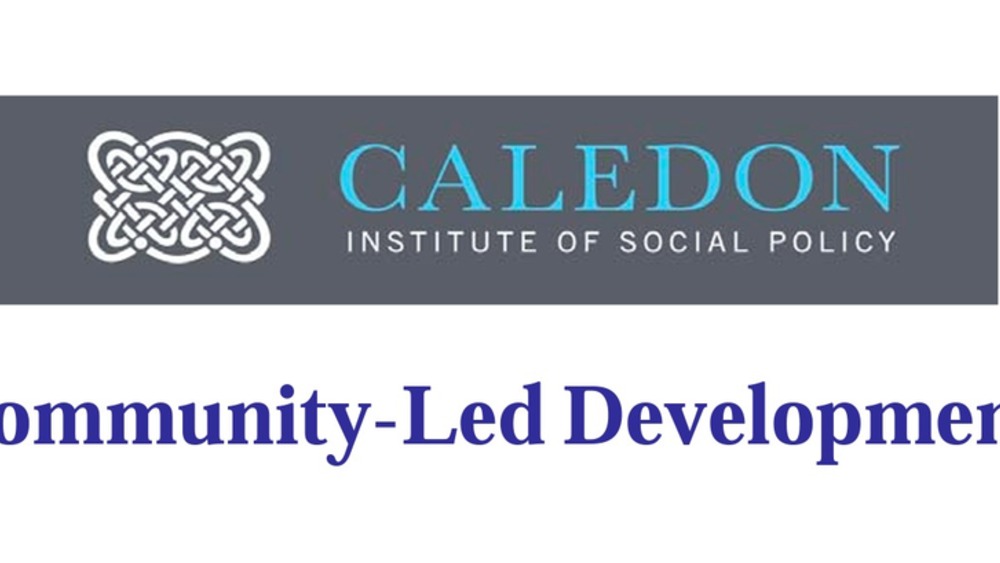
Community-Led Development
The purpose of this paper is to explore the concept and practice of community-led development. It is an approach to tackling local problems that is taking hold throughout the world. While its expression may vary depending upon the community and the specific area of focus, there are nonetheless some…

Securing Our Futures
NCAI is releasing a Securing Our Futures report in conjunction with the 2013 State of Indian Nations. This report shows areas where tribes are exercising their sovereignty right now, diversifying their revenue base, and bringing economic success to their nations and surrounding communities. The…
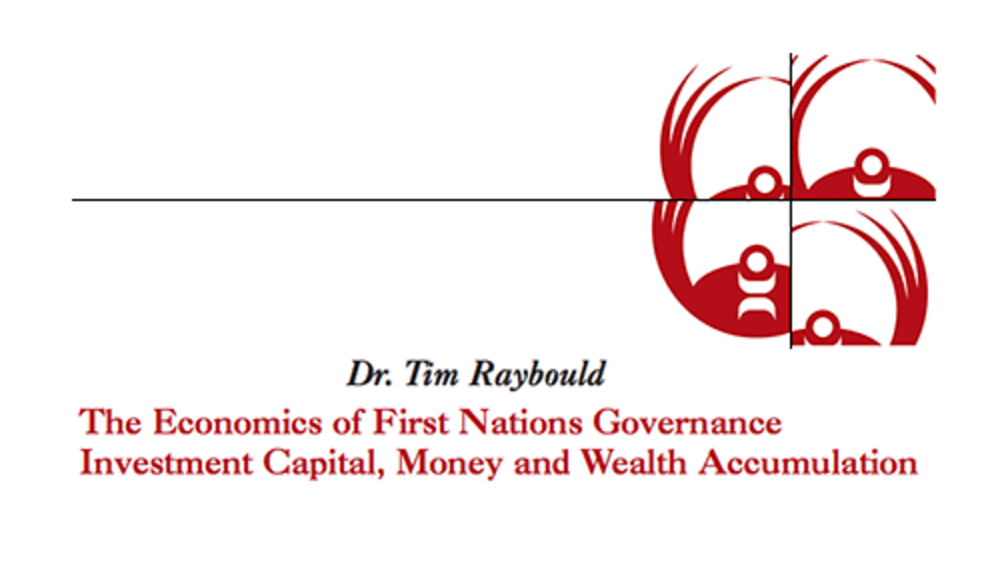
The Economics of First Nations Governance Investment Capital, Money and Wealth Accumulation
There has been much said and written about the underdevelopment of Indian reserves in Canada, the lack of wealth in First Nations’ communities and the concomitant poverty of most First Nations’ people. While Canada sits at seven on the United Nations Human Development Scale this…
